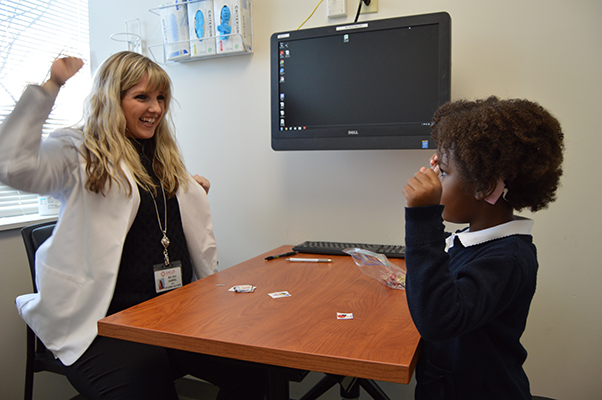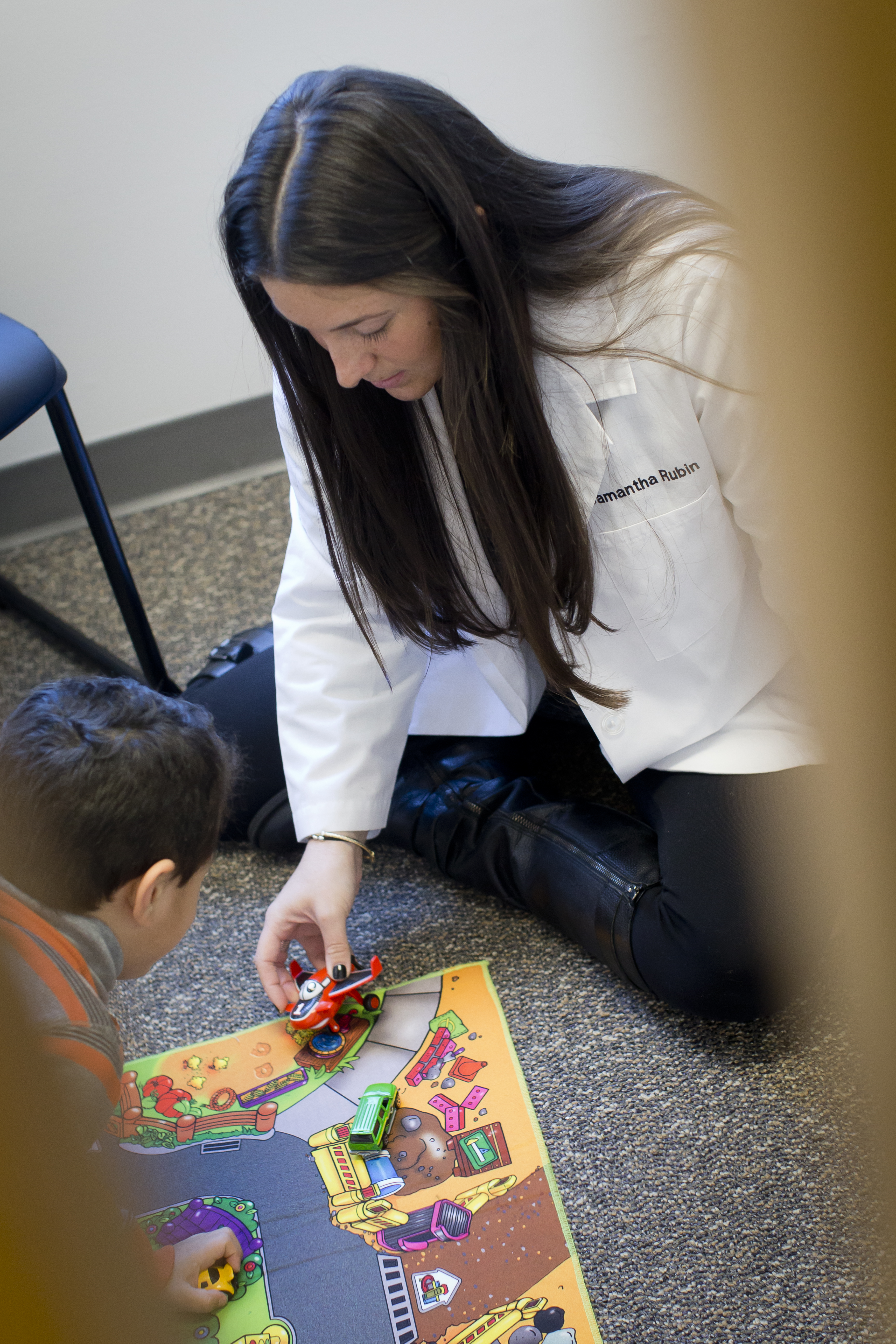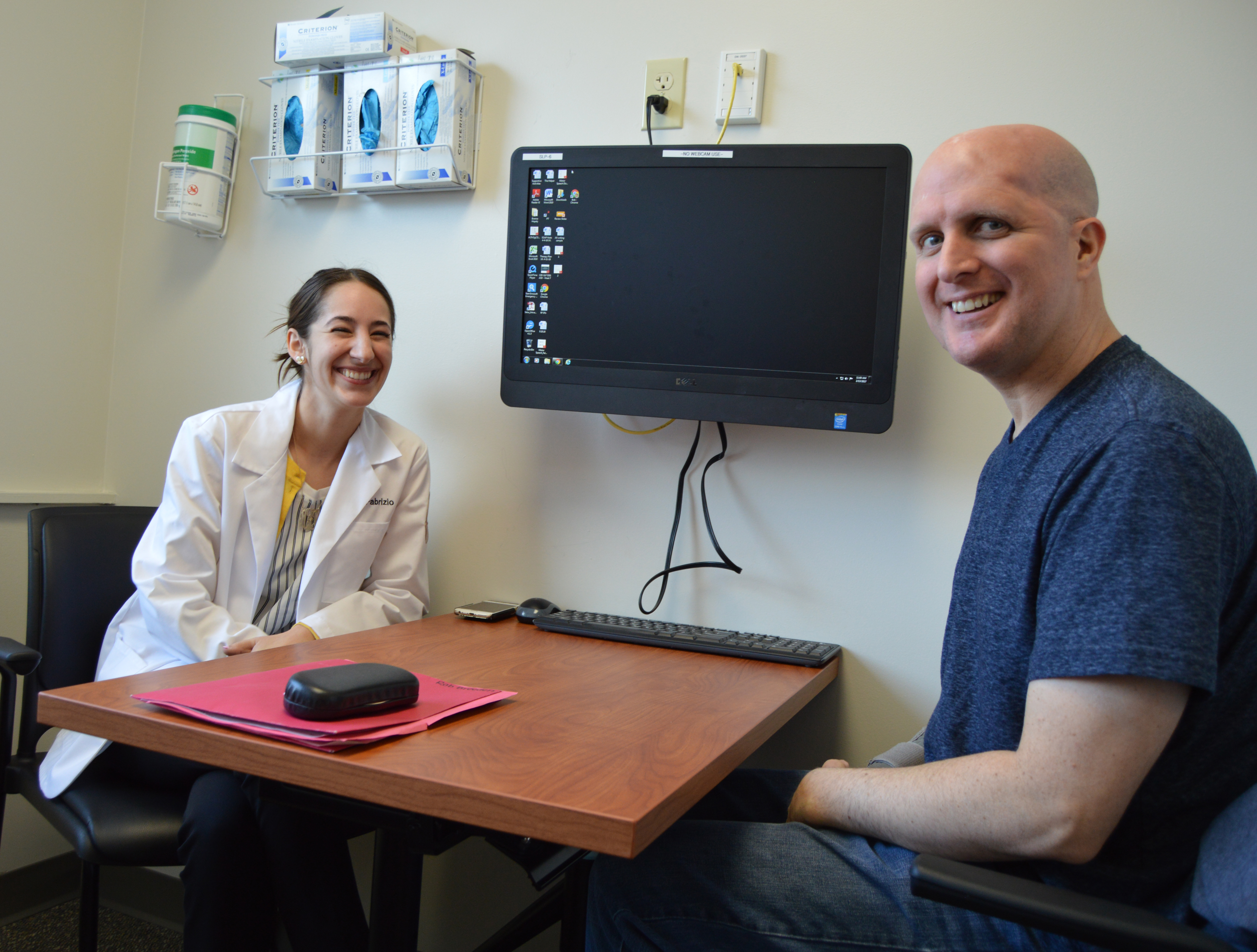A Living Lab: The Speech-Language Institute
 On July 1, 2015, Salus University added another means of serving the local community with the opening of the Speech-Language Institute (SLI), housed on the University’s Elkins Park campus. Just one month after opening its doors, the first group of Speech-Language Pathology (SLP) graduate students began their program. With this in mind, one of the main purposes of the SLI is for students to hone their clinical skills in Speech-Language Pathology. In fact, students are assigned clients on-site their very first week of classes.
On July 1, 2015, Salus University added another means of serving the local community with the opening of the Speech-Language Institute (SLI), housed on the University’s Elkins Park campus. Just one month after opening its doors, the first group of Speech-Language Pathology (SLP) graduate students began their program. With this in mind, one of the main purposes of the SLI is for students to hone their clinical skills in Speech-Language Pathology. In fact, students are assigned clients on-site their very first week of classes.
Early clinical experience has been the hallmark of Salus University’s professional degree programs. “My favorite part of the first year at Salus was being in the Speech-Language Institute,” said Brittany Huckin ‘17SLP. “I am a hands-on learner and being able to directly apply what I learned in the classroom to therapy sessions [in the clinic] was very beneficial.”
Students provide services under the supervision of licensed Speech-Language Pathologists (SLPs), according to Robert Serianni, MS, CCC-SLP, assistant professor and the SLI’s clinical director.
“We want the students to have the responsibility of caring for clients,” he said. “This is like a living lab.”
 The SLI not only plays a central role in the professional training for future SLPs, but as a no-cost clinical facility, it also provides an invaluable service to the surrounding community. Individuals who are uninsured or whose insurance will no longer cover their ongoing needs can utilize services of the SLI. Priority is given to clients who don’t have access to care or who have limited care options, according to Serianni.
The SLI not only plays a central role in the professional training for future SLPs, but as a no-cost clinical facility, it also provides an invaluable service to the surrounding community. Individuals who are uninsured or whose insurance will no longer cover their ongoing needs can utilize services of the SLI. Priority is given to clients who don’t have access to care or who have limited care options, according to Serianni.
The SLI’s client base has continued to grow in the almost two years since its opening. This growth has occurred through professional referrals, outreach efforts, and the development of valuable community partners. The clinical facility’s client base spans quite a large age range—with babies as young as 18 months to older adults in their 90s.
The clinical disciplines at Salus stress interprofessional practice, according to Serianni. Students learn they are part of a healthcare network and gain experience working with other clinical providers such as occupational therapists and social workers. Along with another Salus on-campus patient care facility, the Pennsylvania Ear Institute (PEI), both clinical practices are uniquely positioned since providers at each site can refer to each other to rule out auditory deficits when there’s a language delay.
One client, Grace Collins-Alicea, demonstrates the SLI’s positive impact. Now nearly five years old, Grace was born deaf and had cochlear implant surgery at age one. During preschool, she was referred to the SLI for additional speech services. According to Grace’s father Tony, the therapy his daughter is receiving at the SLI has been great. He noted the SLP students are very inquisitive and have positively impacted Grace’s progress. “Grace has progressed a lot quicker with the SLI’s techniques along with the services she receives at her school,” he said.
Then there’s Rob Breeden, 43, one of the facility’s first clients. Rob was referred by a local rehabilitation center for speech treatment following an aneurysm. When he came to the SLI with relevant communication disorders—aphasia and apraxia—the only way he communicated was with an iPad and simple motions. With his treatment plan at the SLI, his speech has dramatically improved.
These two clients represent examples of how the SLI is positively impacting the clinical training of Salus students and the impact the SLI’s services are making in the lives of members of the community it serves.
